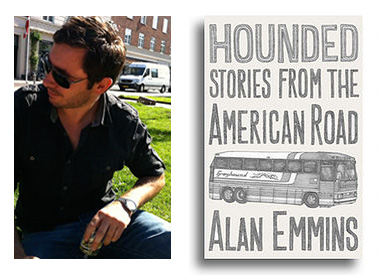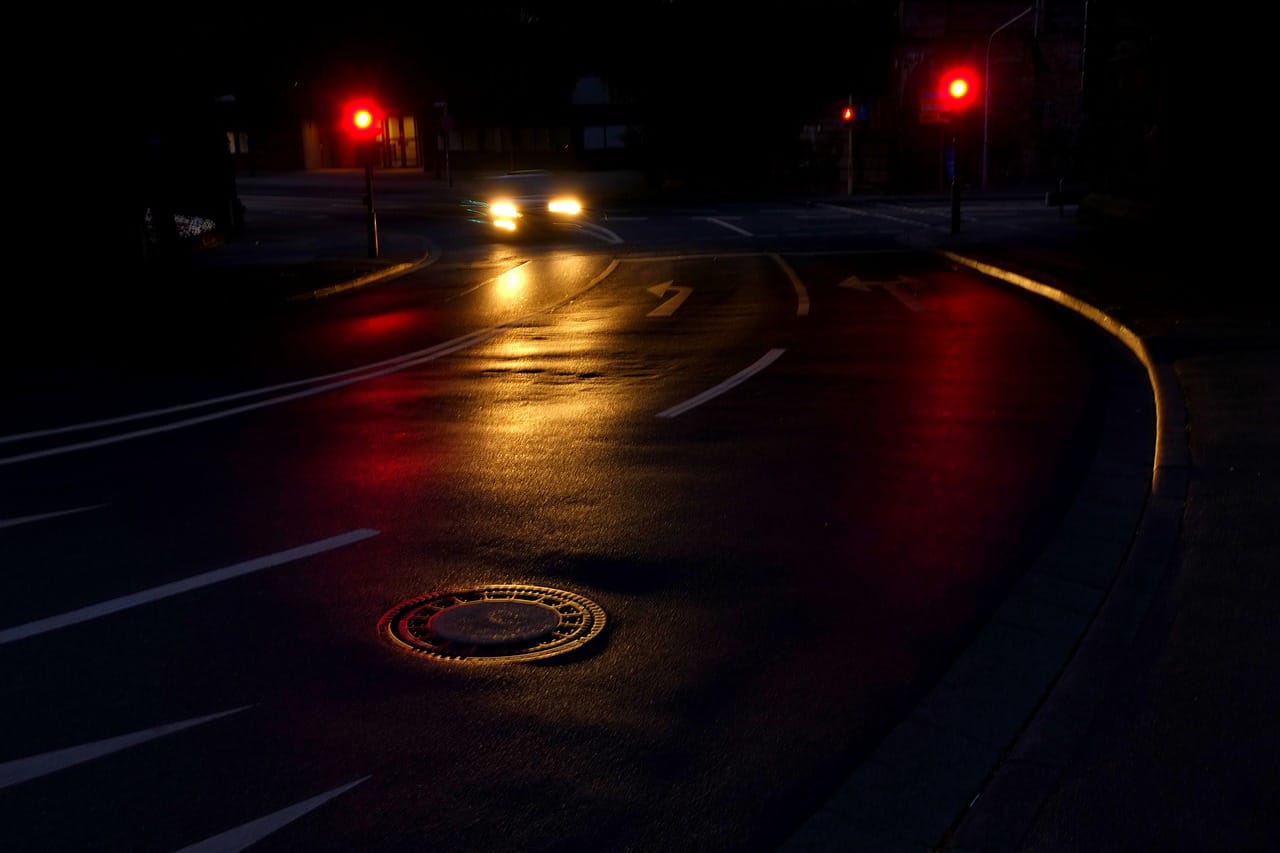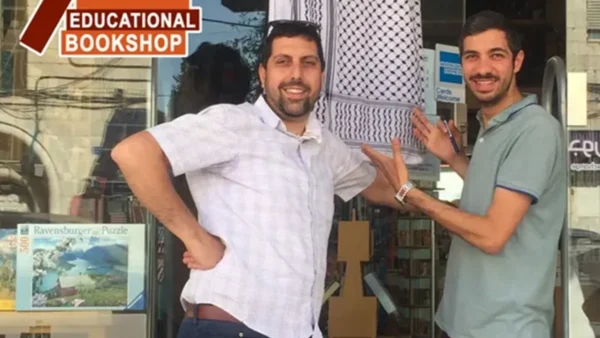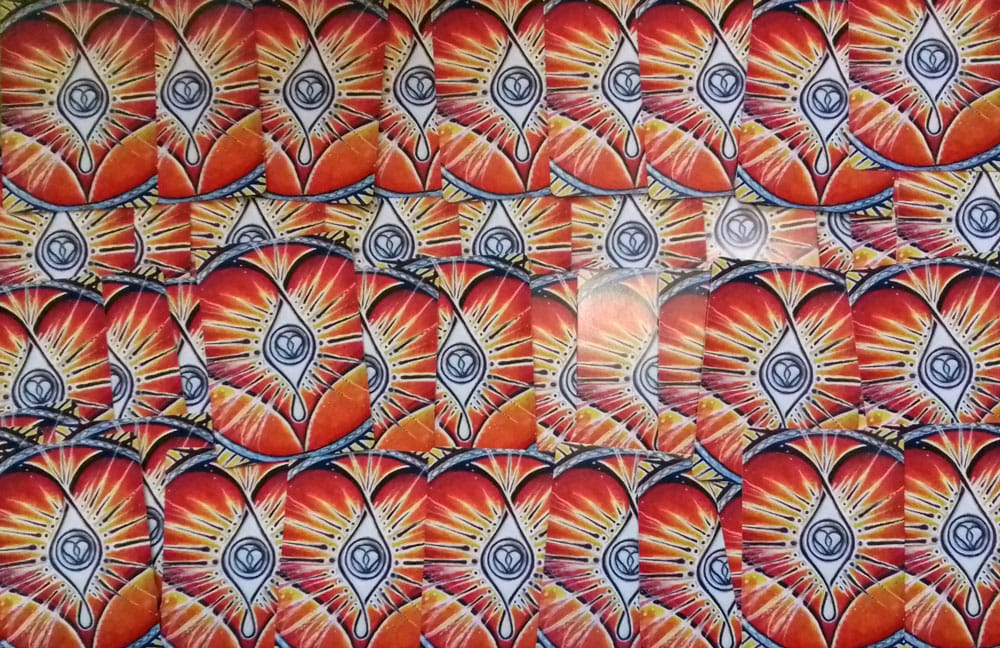Reading Hounded: Stories From the American Road by British journalist Alan Emmins gives a vital insight into the little-seen sights of everyday America, from small-town meth labs to bounty hunters and the aching sadness of a long-distance ride on a chaotic Greyhound bus.
As I travel around Europe, Donald Trump follows me from Ukraine to Moldova, from Bulgaria to Macedonia. He shouts at me from the hotel TV over breakfast, inserts himself into the clickbait sidebars of every website I visit. America and its pathologies are everywhere, it seems. There’s no escape.
But what we see of America is generally one side. It’s the rich people, fighting over power or making movies that reflect their own world. The reality of America for many people is very different. It’s poverty, desperation, addiction, insecurity, violence.
Reading Hounded: Stories From the American Road by British journalist Alan Emmins gives a vital insight into the little-seen sights of everyday America, from small-town meth labs to bounty hunters and the aching sadness of a long-distance ride on a chaotic Greyhound bus.
I interviewed the author recently about the book and what he hoped to convey by writing it. Here’s the Q&A. You can find more details about the book on the website of the publisher, Untold Books.

As a Brit living in Denmark, why did you decide to write about America? What drew you to these places and stories?
Actually, I ended up in Denmark because of my time living in the US, where I met a Dane who lured me to Denmark. But the USA is a place that I still return to and having lived in NYC before I hope I will get to live there again one day. The vast majority of the articles I have written are US based, and that is 100% because of the characters. I don’t know that there is another place with such an amazing array of character types. I have been lucky enough to meet truly amazing, one of a kind human beings. The other thing I love about Americans, beyond their variety, is their openness. Even if you have to spend a little time breaking through a bit of scepticism, which can be common when two strangers meet and one of them (me) wants something from the other, once you are there they are generally very giving. Plus it’s a country built on stories. They just have a natural ability to tell stories.
Do you think that being an outsider helped or hindered you in getting these stories?
Being an outsider was often the thing that made the story possible, not that I necessarily knew it at the time. But I have worked on stories that involved drug dealers and pimps, people are generally tough to deal with, and being an outsider enabled me to get away with things I couldn’t have gotten away with back home in England. They were often quite curious about the English idiot that was naive enough to just bowl up and start asking questions. I also lived homeless for a month to write portraits of homelessness, and the homeless people I met really took care of me and protected me. They were genuinely worried for me. When I lived homeless in London for a week for a Time Out article nobody took on the role of Guardian. It was unadulterated aggression and violence from the get go. In my own country I was not a curiosity, and my naiveté was not cute. I was in the way, and people wasted no time getting me out of the way.
In some of the stories, you play a significant role, and in others you’re more of an invisible observer. How did you make that choice about how much of yourself to include?
Early on, writing for magazines, I was always encouraged to write these immersive first person narratives and I think that was connected to the humour. But when I got my first book deal I basically got an education, and at the end of the editing process I had a much clearer idea of why I wanted to write, and how I wanted to write. I became more interested in trying to write these very calm and simple recordings. But to record, the story has to be there a million percent, and you know quite quickly whether you have what you need to just take a back seat and record. I couldn’t have done it early on. I think it takes more experience, and not just in the writing, but in how you handle the story on site.
How did you manage the logistics of recording facts and dialogue in such fast-moving and sometimes dangerous situations?
So I have always been very focused on the things people say. Depending on the story I would often use a recorder. But as you mention, that was often just not possible. In those situations I would try to write the dialogue down as quickly as I could. I would run the scenes over and over in my head, doing everything I could to be as true to the dialogue as I could. For some stories my notebooks only had dialogue. I think it is also about integrity and trust. The time Sacha and I were running through a subway tunnel with train lights baring down on us, and he was screaming at me to hurry up, do I think I got that dialogue 100% word for word? Actually, I do, but I have to also be open to the fact that in such circumstances there is a chance I got some wording wrong. So integrity is everything. You have to love and respect the art form in order to keep it honest.
Speaking of dialogue, you give a lot of space to people’s speech and not so much to physical descriptions of places. Would you say that’s your writing style, or was it dictated by these particular stories/characters?
I love writing dialogue. I really think you can paint a picture of a person’s character through dialogue, it’s how you give a character a distinctive voice, and bring them to life through their mannerisms. When it comes to places, I do describe them on some level, but if it’s a generic location I would rather the reader filled that gap. So, if the story is in a hotel lobby, does describing it add anything to the story? But if I just write, ‘He was waiting in a hotel lobby,’ the reader will fill that gap easily, they will see a lobby based on their experiences and memories of hotel lobbies. It will be instant and give the story pace. But the reader cannot fill the gaps when it comes to people, and the things they say, or the way they lean back onto the hind legs of a chair as they talk. So I for sure focus more on these things, on dialogue and action, rather than the type of plants they might have in their garden. My view is that the physical place will still be there tomorrow, but the glint in somebody’s eye might not be.
More generally, why do you write?
Well, I guess it stems from a love of reading and storytelling generally. I think written stories are actually really interactive, because you can provoke people, make them laugh, bring old memories back to mind. I also think things that would be mundane in real life can be beautiful in written form. Written words slow us down and get us to appreciate the details that we miss as we dash back and forth in our busy lives.
What did you want to say in writing this particular book? Why should people read it, and what do you want your readers to come away with?
I put these stories together because the American highway, the cars and trucks, the road trips are just iconic, and it’s when on those journeys on those roads that you get to meet a wide variety of people with different experiences, opinions, temperaments etc. Even when you meet people who aren’t necessarily your kind of people, there is always greatness in there somewhere. There is always a way to connect. I hope this book shows that.
The US seems to be in the news all the time these days, and yet the stories in this book seem so far away from the squabbles among Washington DC millionaires. What do you think Hounded tells us about inequality or the current political situation in the US?
Well, no matter what is going on with the Washington DC millionaires, the country is full of everyday people enjoying every day success and overcoming everyday struggles. I don’t know that the book says anything directly about inequality, but whether it is the bounty hunter story or the road trip from NYC to LA on a Greyhound bus story, it does give a look at people overcoming everyday struggles.
The Greyhound story more than any other really captures that. Most people who stepped up onto that bus were struggling with something, be it mental illness, poverty, addiction or whatever, there was always struggle. Nobody wanted to be on that bus. Nobody had dreams of a better life. They were struggling, and from where they were they could only really make a string of poor decisions. I doubt many of those lives have changed for the better. We switched buses several times on that journey, and I have the impression that there’s a thousand Greyhound buses crossing the country everyday with the same scene on board. People panicking. People running. People desperately clinging on. Whenever I come across scenes like that it blows my mind, because you don’t expect that level of poverty and desperation in the USA.
What are you working on or planning to work on next?
Two things, the first one, oddly, is something that can only be described as an erotic crime comedy, which is odd as I have never read any erotica and don’y enjoy crime novels. In fact, I dislike all genre fiction. That said, I don’t think many people are doing it, so if I get it finished there’s a good chance I can corner the erotic crime comedy market.
The other, which is really only a plan right now, is a non fiction book about living with haemophilia. It aims to look at how the same disease can actually feel like a totally different disease depending on where in the world you live. This is due to level of disease awareness, training, wealth etc. I really want to work on this one, but while my agent feels confident he can find a publisher he doesn’t think he can find a publisher willing to pay an advance to cover some of the costs. So even though this book is all planned and ready to go, it will come down to whether or not I can fund the project.




There are 6 comments
Fascinating interview. The book also sounds well worth reading. While I find that CNN and NBC at least do do stories about poor and disenfranchised Americans, Emmins seems to have really gone to places that few others go. It is so interesting that he believes that he got access to people and places that an American would have had more trouble getting.
Yes, it’s interesting, isn’t it, Brian? I thought it was a good point about outsider status, and I can attest to it from my own experience. Although I’ve never done anything like living homeless or seeking out meth labs, I have found while travelling that people are often indulgent and even protective of me as an outsider in odd situations in which at home people might not be so tolerant.
What a great interview. I am sorry to hear that Trump is following you around wherever you go. I haven’t done much traveling in other countries, but I do find what Emmins says about how giving Americans are to be true. When I am out cycling and I get a flat, I generally have five or six people stop to offer help even when I am clearly doing just fine. When things are so ugly on a national level, it is a nice reminder that most people are really good.
Yeah, being followed by Trump is never a good thing 😉 As for the cycling story, though, that’s great to hear!
What an interesting dichotomy in the experiences of living homeless for a month in the two countries. And I love the emphasis on connection which seems to underpin this work.
You’re right, actually, although I never really saw it that way before. But there is a lot about connection here (and the lack of it in some stories).